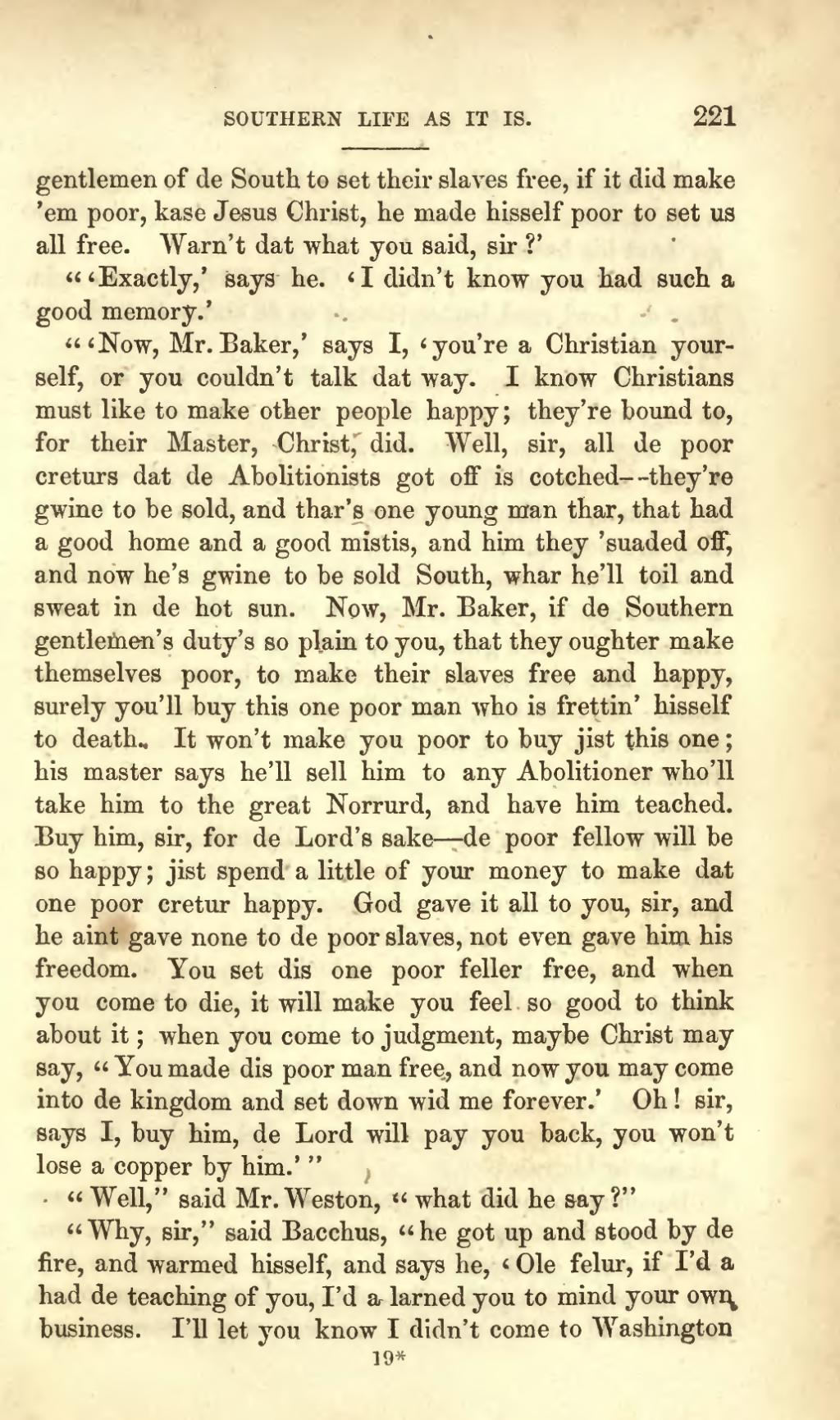gentlemen of de South to set their slaves free, if it did make 'em poor, kase Jesus Christ, he made hisself poor to set us all free. Warn't dat what you said, sir?'
"'Exactly,' says he. 'I didn't know you had such a good memory.'
"'Now, Mr. Baker,' says I, 'you're a Christian yourself, or you couldn't talk dat way. I know Christians must like to make other people happy; they're bound to, for their Master, Christ, did. Well, sir, all de poor creturs dat de Abolitionists got off is cotched--they're gwine to be sold, and thar's one young man thar, that had a good home and a good mistis, and him they 'suaded off, and now he's gwine to be sold South, whar he'll toil and sweat in de hot sun. Now, Mr. Baker, if de Southern gentlemen's duty's so plain to you, that they oughter make themselves poor, to make their slaves free and happy, surely you'll buy this one poor man who is frettin' hisself to death. It won't make you poor to buy jist this one; his master says he'll sell him to any Abolitioner who'll take him to the great Norrurd, and have him teached. Buy him, sir, for de Lord's sake--de poor fellow will be so happy; jist spend a little of your money to make dat one poor cretur happy. God gave it all to you, sir, and he aint gave none to de poor slaves, not even gave him his freedom. You set dis one poor feller free, and when you come to die, it will make you feel so good to think about it; when you come to judgment, maybe Christ may say, "You made dis poor man free, and now you may come into de kingdom and set down wid me forever." Oh! sir,' says I, 'buy him, de Lord will pay you back, you won't lose a copper by him.'"
"Well," said Mr. Weston, "what did he say?"
"Why, sir," said Bacchus, "he got up and stood by de fire, and warmed hisself, and says he, 'Ole felur, if I'd a had de teaching of you, I'd a larned you to mind your own business. I'll let you know I didn't come to Washington
